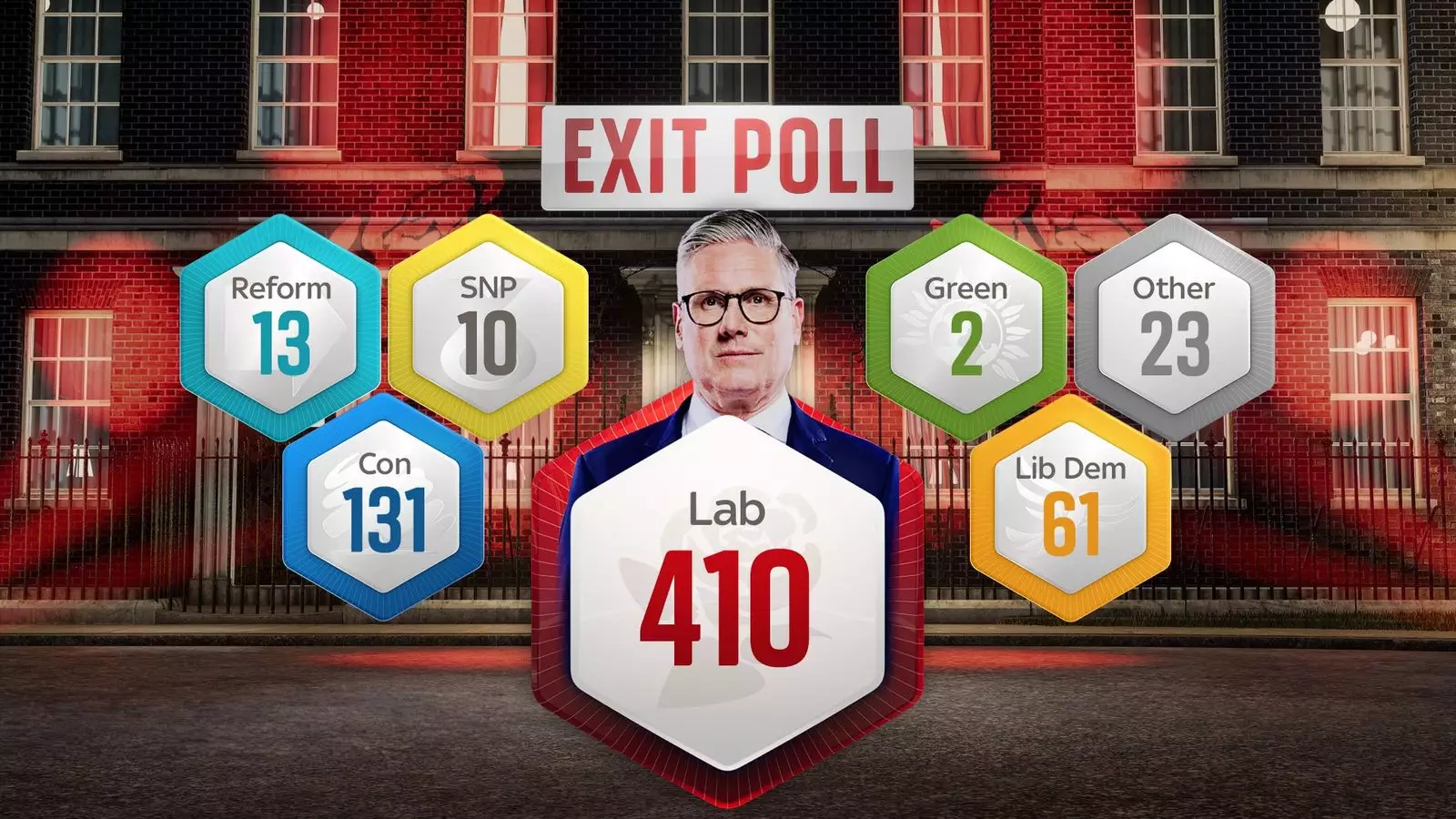In what seemed like a historic turn of events, Labour emerged victorious in the general election, breaking a 14-year streak of Conservative dominance. The exit poll conducted by Ipsos UK for Sky News/BBC/ITV News projected that Sir Keir Starmer’s party would secure a staggering 410 seats, giving them an overall majority of 170. This outcome seemed to spell the end of Conservative rule, with the Tories projected to win just 131 seats, a sharp decline from their 365 seats in the previous 2019 vote. Some of the key Conservative figures, such as Chancellor Jeremy Hunt, Defence Secretary Grant Shapps, and Veterans Minister Johnny Mercer, were also predicted to lose their seats in this unexpected turn of events.
Labour’s deputy leader, Angela Rayner, cautiously downplayed the results, acknowledging that while the exit poll was “encouraging,” there was still a long road ahead until the final numbers were confirmed. She praised Sir Keir Starmer’s efforts in transforming the Labour Party and presenting a compelling program for government that resonated with the country. On the other hand, Conservative former justice secretary Sir Robert Buckland acknowledged the magnitude of the defeat and emphasized the need for reflection and learning from this setback. He stressed the importance of not rushing into pointing fingers or assigning blame, but rather undertaking a comprehensive examination of the events that led to the electorate’s rejection of the Conservatives.
The exit poll provided a glimpse into the expected seat distribution for each party, revealing a significant shift in the political landscape. Labour was projected to secure a landslide victory, surpassing their previous results and more than doubling their seat count from five years ago. However, it appeared that they might fall short of the 179-seat majority achieved by Tony Blair in 1997. The Conservatives faced a historic low in both share of the vote and seat tally, potentially falling below their 1906 record. The Liberal Democrats were predicted to make substantial gains, increasing their seat count from 11 to an impressive 61, positioning themselves as the third-largest party in the Commons. The SNP, on the other hand, faced a notable decline in seats, dropping from 52 in 2019 to just 10 according to the projections.
A notable newcomer in the political arena was the Reform party, led by Nigel Farage, which was expected to secure 13 seats, potentially surpassing the SNP in terms of representation. Nigel Farage himself was on track to win in Clacton, adding a new dynamic to the parliamentary landscape. To form a majority government in the Commons, a party needed to secure at least 326 seats, underscoring the significance of the projected outcomes. The analysis indicated that the Conservatives experienced significant losses in areas with a high percentage of households with mortgages, possibly linked to the repercussions of the Liz Truss “fiscal event.” The Liberal Democrats, on the other hand, saw success in constituencies where they were the main challengers to the Conservatives, particularly in areas they had previously held until 2015.
The Conservative campaign faced a series of challenges and missteps that contributed to their projected defeat. From strategic errors in timing and communication blunders to controversies surrounding betting on the election timing, the campaign was fraught with difficulties. The decision-making process, including the announcement of the election in adverse weather conditions and the handling of sensitive commemorations, raised questions about the leadership’s judgment. As the campaign progressed, revelations about betting scandals and questionable practices among Conservative affiliates further tarnished the party’s image, intensifying the pressure on the Prime Minister and his inner circle.
Overall, Labour’s landslide victory represented a significant shift in the political landscape, marking the end of a long-standing Conservative rule and opening up new possibilities for governance and policy direction. The aftermath of the election would undoubtedly entail a period of reflection, reform, and adaptation for both parties as they sought to navigate the evolving contours of British politics.


Leave a Reply